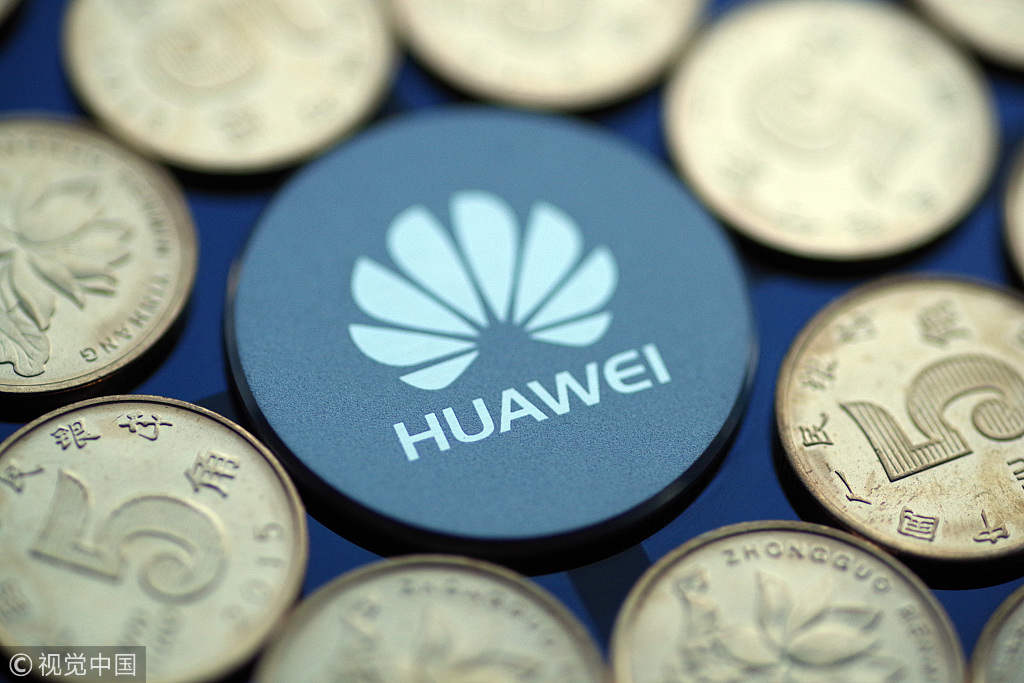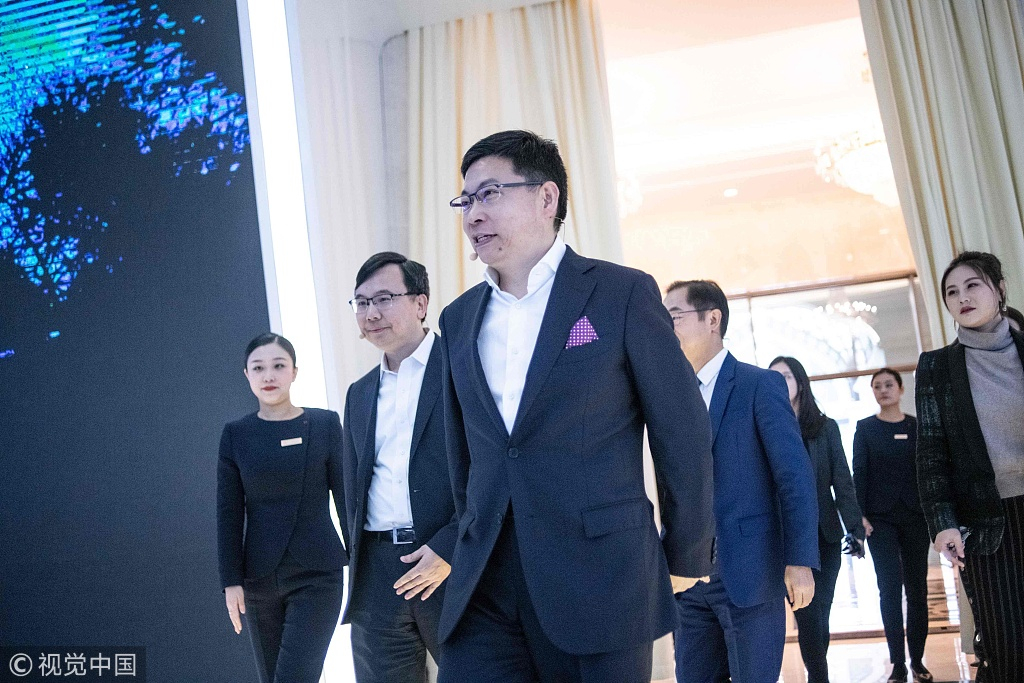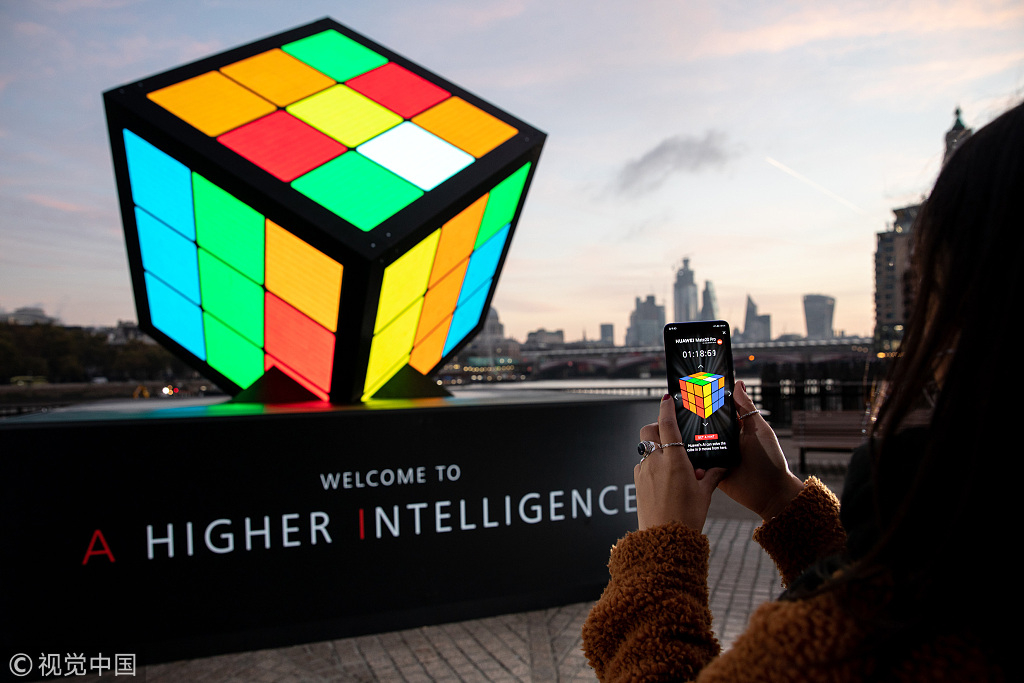
Opinion
10:00, 02-Mar-2019
Why Trump's anti-Huawei campaign is an embarrassment
Updated
10:30, 02-Mar-2019
Ghanbar Naderi

Editor's note: Ghanbar Naderi is an Iranian journalist, a current affairs commentator, a documentary filmmaker, and a member of the Writers Guild of Great Britain. The article reflects the author's opinion, and not necessarily the views of CGTN.
The Trump administration has waged an unwarranted campaign against the Chinese telecommunications giant Huawei.
The isolationists claim many Asian, African and European nations deploying their next-generation wireless networks with help from Huawei are in fact giving Beijing a conduit for espionage and worse – something the company strenuously denies.
Bending the arc of moral universe backward
There is mounting evidence showing that this is a set up job to beat all set up jobs – a dirty trick assigned by President Donald Trump to the neocon faction in his administration.
In this stunt, the isolationists are desperate to use every trick in the book, even throwing the kitchen sink, to stop China's political and economic ascendency under President Xi Jinping's vision of mutual trust and collective governance in global cyberspace.

VCG Photo.
VCG Photo.
The necon faction is terrified that President Xi's proposal of building a community with a shared future in cyberspace has made great contributions to improving global cyberspace governance. To bend this arc of the moral universe backward, they are using the highest-paid news commentators and wide-eyed conspiracy theorists to slander China.
In this paranoid season, the root of neocon tricksters' “Sinophobia” has gone deeper than this. Per this policy, Huawei cannot operate in the U.S., its CFO Meng Wanzhou can be arrested on an extradition warrant, and it cannot get “normalized” trade relations with American counterparts.
Interestingly, their own mainstream media outlets have just put together a table of major espionage in America. The list is dominated by Russia, its satellites, and Israel. No Chinese, which is a good thing.
However you look at it, Huawei cannot be punished for being the world's No. 1 telecom-equipment maker. The “archetypal outsider” is nowhere near the sneaky National Security Agency of Fort Meade in Maryland. It runs the global espionage network, yet Huawei, which remains accessible to all regardless of where they live, has to be the usual suspect and cannot be allowed to bring about real change in the world.

Richard Yu (C), CEO of the Huawei consumer business group, arrives for a press conference and launch of new 5G Huawei products at the Huawei Beijing Executive Briefing Center in Beijing, January 24, 2019. /VCG Photo.
Richard Yu (C), CEO of the Huawei consumer business group, arrives for a press conference and launch of new 5G Huawei products at the Huawei Beijing Executive Briefing Center in Beijing, January 24, 2019. /VCG Photo.
This is outrageous. This shows there is a new trend in anti-Chinese sentiment in Washington led by Trump's top decision-makers. Their trade frictions between the U.S. and China are fueling this, too. They regard Huawei's global success as “a national threat.” This irrational perception and anxiety is not only harming the U.S., but making efforts to end the trade war even harder.
The road to defeat
Trump's anti-China policies will have serious global ramifications. He has chosen to turn a blind eye to the great contributions that Chinese technology has made to western prosperity. His neocon faction is using the Huawei lie to cover up U.S. failure in catching up with China in technology and trade. They are desperate to gloss over their incompetency, and the sad part is that some political and economic elites buy into such absurd and outdated rhetoric.
The stage is set, but there will be no real chance for the U.S. to win. It cannot stop Huawei, as U.S. companies are not serious competitors in this market. The neocons exaggerate Huawei's threat because their case is short on specifics – and falsified.
Irrespective of their lies, Beijing doesn't need secret access to Huawei switches, routers and wireless base stations to infiltrate American networks, locate military bases, steal trade secrets, disrupt global markets, and/or install software “backdoors” in Huawei's “complicit equipment” that Chinese intelligence allegedly could use to tap into, eavesdrop on or interrupt Western data transmissions.
A large number of Western experts and cybersecurity firms argue that's unlikely to happen – “almost zero because it would be discovered.” And they are yet to hear from NSA “ever finding Huawei backdoors created for Chinese intelligence.”

A giant AI-powered Rubiks Cube is unveiled by Londons South Bank to celebrate the launch of the new Huawei Mate 20 Pro, the world's first dual-AI powered smartphone in London, England, October 25, 2018. /VCG Photo
A giant AI-powered Rubiks Cube is unveiled by Londons South Bank to celebrate the launch of the new Huawei Mate 20 Pro, the world's first dual-AI powered smartphone in London, England, October 25, 2018. /VCG Photo
One irony of the situation is that the U.S. has actually done what it accuses Huawei of doing. It's the reason why many nations, including Washington's European allies, are reluctant to embrace a blanket anti-Huawei ban even as Trump officials continue to cast the world's No. 1 telecom-equipment maker as little more than “an untrustworthy surrogate for Beijing's intelligence services.”
Despite the aura of awe-inspiring power the neocon faction gives off, Huawei will continue to make significant global inroads with its fifth-generation, or 5G, wireless technology. Trump can ban Huawei from the U.S. and try not to present this as a failure. But the global order won't blink.
Such analogies are always imperfect, yet there are medium or high priority “shortcomings” and “insecurities” in any telecommunication network. Huawei's engineering practices are no exception.
These problems and defects are manageable, certainly never reflective of Chinese hostility or intentional. Any doubters should ask the British and German cyber-risk agencies and officials who have indicated that “they will reject a blanket Huawei 5G ban.”
For those trying to track global trends in telecommunications technology for the next decade or two, Trump's unwarranted campaign against Huawei is not only an embarrassment, it is a potential disaster for American telecommunication companies.
More broadly, it would be an understatement to say that his failure to end the trade war is amputating not only the future but also the present-tense possibilities of many Chinese and American companies working together in new-world technologies.
(If you want to contribute and have specific expertise, please contact us opinions@cgtn.com.)

SITEMAP
Copyright © 2018 CGTN. Beijing ICP prepared NO.16065310-3
Copyright © 2018 CGTN. Beijing ICP prepared NO.16065310-3